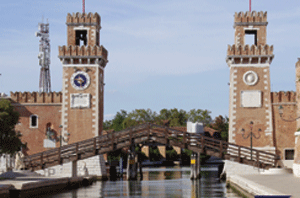The Jewish Duke of Naxos
| December 21, 2011 History does not record the existence of even one Jewish member of the European nobility other than Don Yosef Nasi and for good reason. To be a Jewish duke in sixteenth century Europe was an extraordinarily complex undertaking requiring huge amounts of faith resourcefulness and cunning not to mention nerves of steel in order to survive in an environment filled at every moment with danger and intrigue.
History does not record the existence of even one Jewish member of the European nobility other than Don Yosef Nasi and for good reason. To be a Jewish duke in sixteenth century Europe was an extraordinarily complex undertaking requiring huge amounts of faith resourcefulness and cunning not to mention nerves of steel in order to survive in an environment filled at every moment with danger and intrigue.
By the time Don Yosef stepped out onto the balcony on that chilly evening in 5330 he had already experienced a lifetime of such extraordinary events that were it not for the existence of detailed historical records one could doubt whether they had in fact ever taken place.
By this point in his life Don Yosef had established and directed an international financial empire known as the House of Mendes which operated a clandestine network that smuggled thousands of Anusi Jews to freedom from the lands of religious oppression. He maintained connections with sovereigns and noblemen throughout Europe. He had a personal acquaintance with Charles V the zealous ruler of the Holy Roman Empire who granted him knighthood and was a good friend of Maximilian the Emperor’s brother and the eventual heir to his throne. He was a frequent visitor in the home of Mary Queen of Scots and was a welcome guest in the homes of French royalty. His vast network of contacts within the royal and noble classes from east to west along with his massive fortune placed him in a rare position of influence which he used for the benefit of his fellow Jews.
Unlike his famous aunt Dona Gracia and other Jewish personalities of the time Don Yosef was not a “shtadlan” in the conventional sense. Rather than sitting in the shadows and pulling invisible strings he instead occupied the limelight playing a highly prominent role in the political affairs of Europe.
Even after divesting himself of the Christian guise of his years as a “Marrano” Don Yosef continued to affect the manners and style of a proud powerful Portuguese nobleman. Something about living as a Christian aristocrat left a deep imprint on him as it did with many other “Marranos ” and that effect remained even after he returned to Judaism. This very public and confident manner of conduct explains his phenomenal rise on the stage of society and the awe his name evoked in certain parts of Christian Europe. But perhaps it also helps explain why his accomplishments were ultimately of very limited duration.
Who was Don Yosef and how did he become one of the most influential figures of his day?
To read the rest of this story please buy this issue of Mishpacha or sign up for a weekly subscription.
Oops! We could not locate your form.
